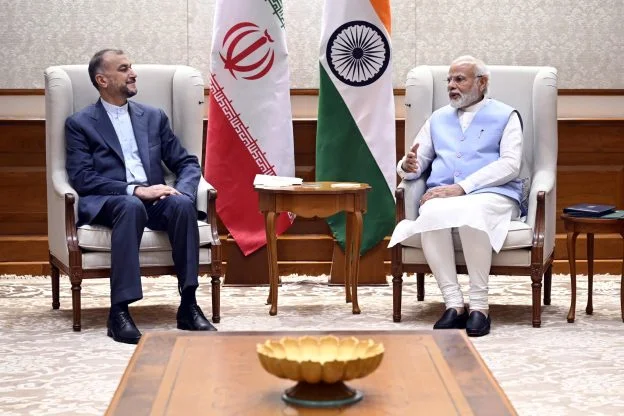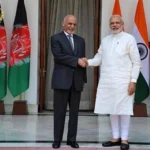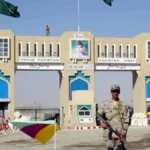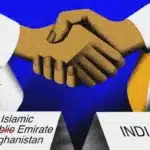When it comes to the regional stability of South Asia; it seems to be that certain international entities feast on the uncertainty and the unsteadiness that continues in the region.
On 6th September 2021, the Taliban claimed to take over the Panjshir in Afghanistan. Similar to their narrative which has stayed persistent since the fall of the Kabul Government, the Taliban have assured security to the locals of Panjshir and that they too will be included in the upcoming new Afghanistan Government.
Indo-Iran Narrative Building
Following the takeover of Panjshir, Pakistan gets caught in another false narrative. Iran and India, have accused Pakistan of helping the Taliban by providing them with their Air force. While doing so is nothing new for India, Iran has now too joined hands.
#BREAKING
Iran FM Spokesman @SKhatibzadeh: The intervention of Pakistan in #Panjshir attacks is currently under examination. Iran considers inter-Afghan talks as the only solution to Afghanistan problem.— Tehran Times (@TehranTimes79) September 6, 2021
The Indian Narrative building has been persistent since the fall of Kabul, the country continues to spread fake news with respect to the Afghan civilians under the Taliban takeover. Listing down atrocities that have not occurred. Likewise, the new false claim of India and Iran goes to such an extent that the Indian media uses a clip from ARMA 3, (a video game) as ‘proof’ of Pakistan’s Air Force involvement in the Panjshir takeover.
Iran’s Economic Depreciation
Excluding India, the Taliban has invited regional states, i.e., China, Pakistan and Iran to the New Government Event. Seeing this, India seems to feel left out. Therefore is approaching Iran to take a similar narrative as its own. Recently, the Indian Government was observed reaching out to the new administration in Iran to establish closer ties. This year, the Indian Foreign Minister has already visited Tehran twice. This eventually determines that New Delhi considers this opportunity as an important prospect to achieve its regional aims. India has long been working with Iran on providing an economic pathway from the Iranian port of Chabahar into Afghanistan. This makes India’s efforts the more pressing in light of the US withdrawal.
India has economic stakes in Iran due to the Chabahar Project. India’s interest is only based on the Wakhan Corridor, which links Afghanistan to Central Asia.
Afghanistan is the very definition of a geopolitical pivot. Therefore, India fore-mostly aims to access Central Asia through the Wakhan Corridor and the Chabahr Port.
Iran’s Regional Role in South Asia
All of this brings back the question; despite the fact that the Taliban for the New Government Event, invited Iran, Iran continues to side with another regional state. A state that the past participated and supported proxies in the region?
As concerns, in 1960s, regional cooperation equation, Regional Cooperation for Development (RCD) was established. It was a development and security organization between the fastest-growing Asian economies of that time; Pakistan, Iran and Turkey. However, it was dissolved in 1979; in the wake of the Islamic revolution in Iran, and socio-political upheavals in Turkey and Pakistan. Afterwards, with the emergence of regionalism in the late 1980s Economic Cooperation Organization (ECO) was established in 1985; with its Secretariat in Tehran, Iran. Hence, the regional cooperation platforms have always been there, considering that; doesn’t Iran need to step forward for a more proactive regional role to contribute to materializing regional cooperation post-US withdrawal from Afghanistan?
Rise of Taliban; Sunni Secularism in Iran
Previously, Tehran supported the Northern Alliance of anti-Taliban forces and the 2001 US-led NATO. This played an important role in collapsing Taliban. In the current scenario, the rise of Sunni Secularism in Iran and the establishment of the Taliban pose risks for Iran in the region. The most logical argument could be that Iran is considering its national interests. Likewise, siding with India seems beneficial as this might be able to help in uplifting the nuclear sanctions Iran has been facing from the Indian ally, i.e., the US. Iran has become economically isolated.
The rise of Sunni secularism in presence of the Taliban and the economic depreciation due to sanctions has created a road for Iran towards the sudden reliance on India.
Even though, in March 2021, Iran and China have signed a long-gestating 25-year cooperation accord as both countries remain under Unites States sanctions.
According to Al Jazeera, the stakeholders expect the agreement is a “strategic accord”; that includes significant Chinese investments in Iran’s key sectors. Such as energy and infrastructure, in addition to military cooperation. Both countries also agreed to increase bilateral trade more than 10-fold to $600bn in the next decade. It is surprising that despite China being the superior economic power in the region, Iran still chooses to side with India; the country that does not even share a border.
Alongside this, what assurance has India given to Iran on the resumption of the Joint Comprehensive Plan of Action (JCPOA) for adopting the Indian narrative on Pakistan? Granted that after the US withdrawal in 2021, President Biden has not taken any action on it.
Conclusion
In light of all this, Pakistan must place some focus on the evolving threat matrix in the Western region of Pakistan. Ever since the fall of Ghani’s government, the proxies have shifted to Iran. The Indian run proxies such as ISK-P, BLA and BRAS have lost ground in Afghanistan but their heads people associated with them have been taking shelter in Iran. Considering the developing ties between Iran and India; this evolving threat matrix in the West of Pakistan poses serious threats to regional stability and CPEC. In its alliance with India, Iran should consider that Ghani’s reliance on India did not reap to be beneficial. How can India rescue Iran which is engulfed in persistent internal socio-political, and ethno-religious turmoil and depreciating economy?
Your go-to editorial hub for policy perspectives and informed analysis on pressing regional and global issues.





Add a Comment